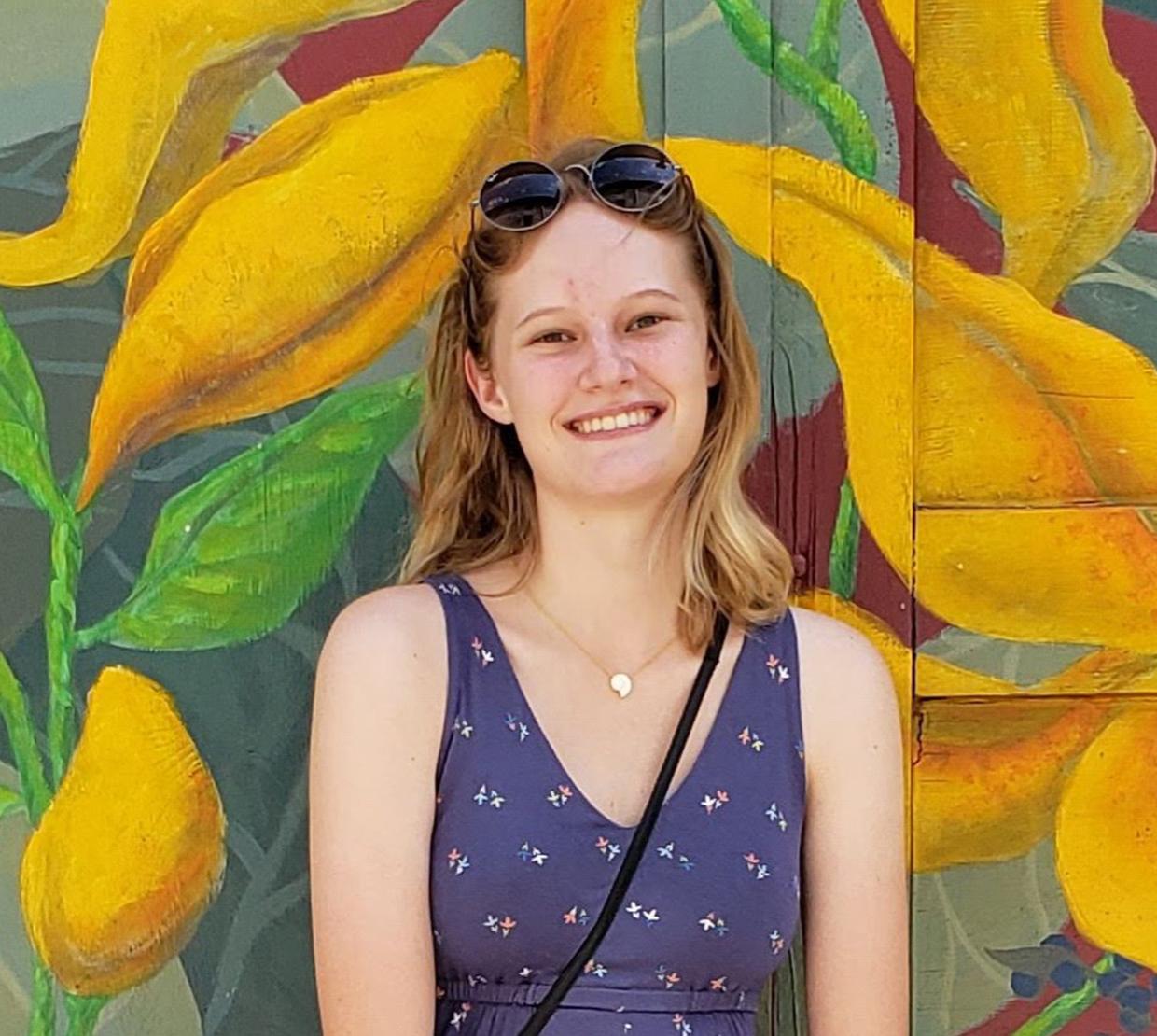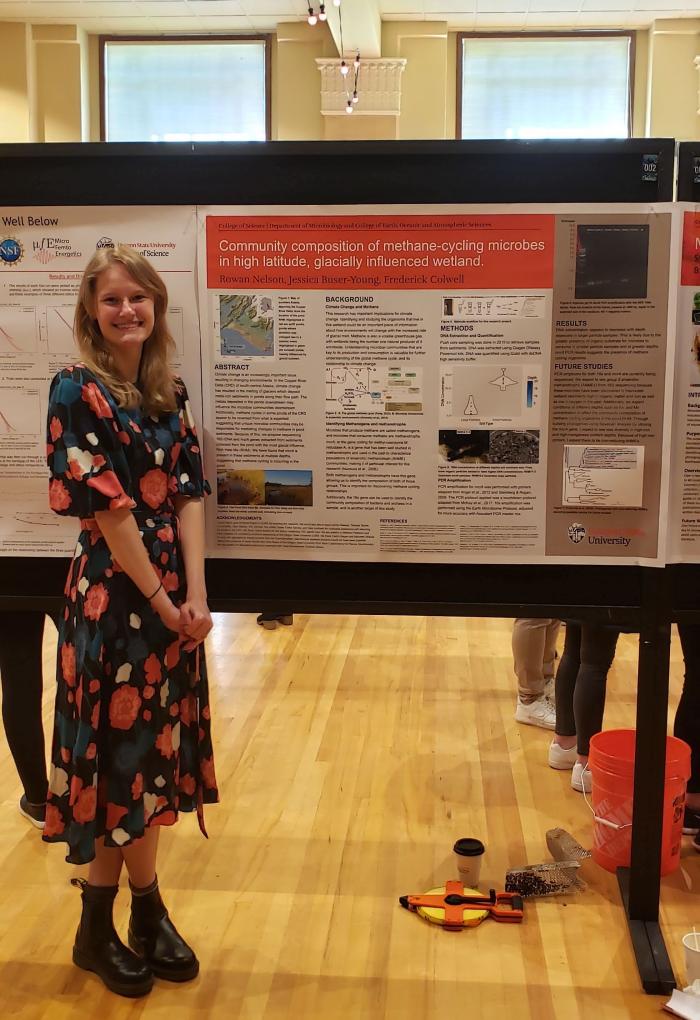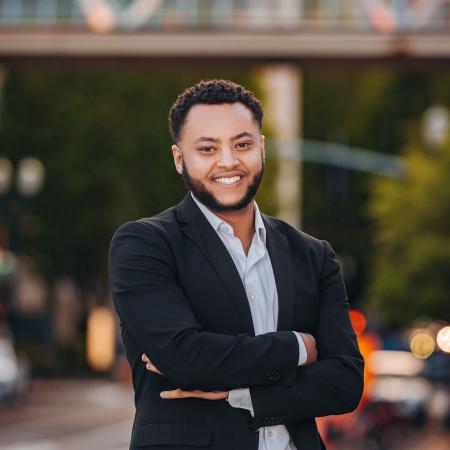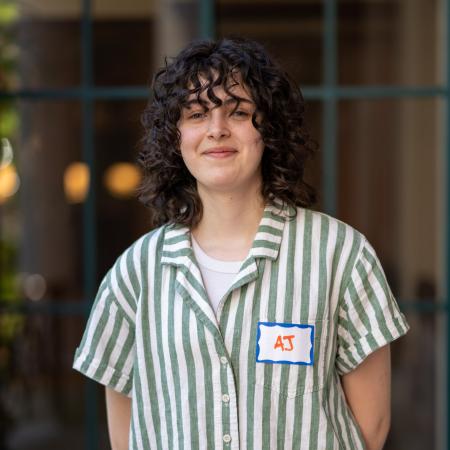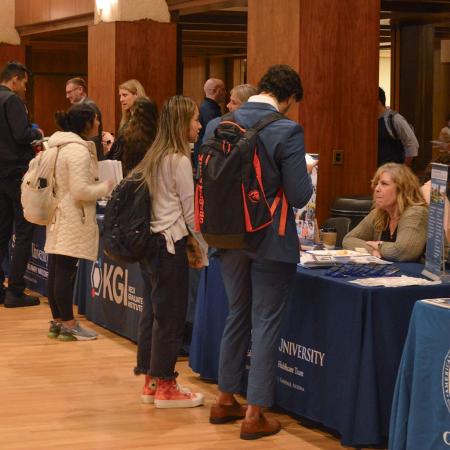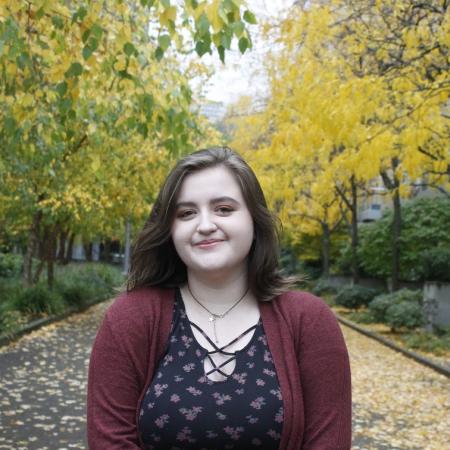Rowan Nelson has come into her own as a researcher during her time in the College of Science. A Biochemistry and Molecular Biology graduate, she has completed minors in Biological Data Science, Computer Science and Asian Languages and Cultures with a focus in Japanese. Through her experience with undergraduate research, she found a path through her diverse interests to the work she wants to continue for the rest of her life.
Nelson grew up in Arizona and Lake Oswego, just south of Portland. She greatly prefers the latter place, especially the beauty of the Pacific Northwest’s lush forests.
Nature was a major inspiration for her initial interest in science. Documentaries and a snorkeling trip to Hawaii initially drew her to marine science. “I thought cuttlefish were the coolest, and I wanted to study them,” she said.
In high school, AP Biology and AP Chemistry further defined her direction. She found immunology fascinating, how our immune cells are separate and distinct but such an integral part of our bodies. “That’s what drew me to biochemistry at Oregon State,” Nelson said. “I wanted to learn about those interactions.”
Honing in on her research interests
Nelson found the interdisciplinary research experience she was looking for through the Summer Undergraduate Research Experience (SURE) Science program. SURE Science allows College of Science students of any year to get paid to do 11 weeks of full-time research over the summer with faculty from any college. Nelson’s project for SURE examined the impact of climate change on environmental microbes through the Colwell Lab in the College of Earth, Ocean, and Atmospheric Sciences.
The goal of the project was to identify and characterize methane cycling organisms from the wetlands of the Copper River Delta in Southwestern Alaska. “The area is highly influenced by glacial outwash, which deposits minerals, lower downstream, in a gradient of lakes that all have different amounts of influence from glaciers as they melt,” Nelson said.
Nelson’s research analyzed genetic sequences of microbes from the pond closest to the glacial influence source. The area has unusually high amounts of iron, which could be interacting with the microbes’ ability to process methane. “Wetlands are the number one natural producer of greenhouse gases worldwide, due to the breakdown of organic material,” she said, “so it’s important to know if elevated mineral levels are interfering with methanogenesis or methanotrophy.”
To analyze the microbes’ genetic codes, Nelson used powerful data processing tools drawn from her coursework in biological data science and computer science. “All sorts of programs designed by other researchers can elucidate these genetic relationships and determine what microbe is what,” she said. “Bioinformatics uses computer science as an application for biological systems, while computational biology actually develops those applications, which is what I want to do in the future.”
